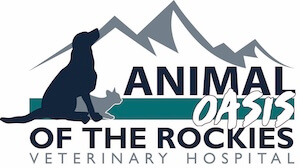A tibial plateau leveling osteotomy (TPLO) is a way to repair the cranial cruciate ligament (CCL) in a dog. A torn CCL is similar to a torn ACL in a person and can come from an accident or injury. If your dog has experienced a CCL injury, they may need a TPLO pet surgery to recover. At Animal Oasis of the Rockies, we can determine whether this surgery is needed for your pet. If you're in the Broomfield, CO, area and in need of an emergency vet, we're here to help.
Seeing your pet struggling to move or limping is unsettling for any pet owner. When you notice your pet suffering from limited mobility, you must contact your veterinarian near you immediately. Your pet’s lack of movement could be from a CCL tear. Animal Oasis of the Rockies in Broomfield, CO, provides TPLO surgery to help repair your pet’s CCL. Continue reading to learn how TPLO surgery at our animal hospital can help your pet move like it used to.
When Your Dog Damages Their CCL
A dog’s leg has a pair of ligaments in front of its knee called the cruciate ligaments. The topmost ligament is the anterior cruciate ligament, otherwise known as the ACL, and the other section is the cranial cruciate ligament, also known as the CCL. Your dog’s tibia will move abnormally upward against its femur when the CCL becomes torn. These abnormal movements cause pain and prevent your dog from placing weight on the leg. Your dog may also hold its leg to the side when sitting due to a torn CCL.
Does My Dog Need TPLO Pet Surgery?
A dog with a torn CCL will most likely need TPLO surgery. That's because this ligament doesn't just heal up on its own. Some small damage to the ligament might heal, but a significant tear won't. That's why it's very important to find out from a veterinarian whether your dog will need surgery or whether there are other options. You don't want to make assumptions when it comes to your pet's health, and a vet is the best person to talk to when it comes to providing information and quality care.
When Your Vet Recommends TPLO Surgery
When your vet diagnoses a torn CCL, they will often choose to do a pet surgery called tibial plateau osteotomy, or TPLO. This surgery corrects the position of both bones and allows the dog to walk normally. Your vet does this by making a semicircular cut across the top of the tibia to correct its alignment with the femur. Once our vet corrects the angle, they will secure the tibia to the femur with a bone plate. Doing this prevents further injury and reduces the pain caused by the torn ligament.
After Your Dog’s TPLO Surgery
Around 50% of dogs can walk within 24 hours of their TPLO surgery. Our vet will give your dog pain medication to help ease symptoms as it recovers. We will also schedule regular visits to our animal hospital to check your dog’s progress after the surgery. Your dog will likely regain its usual activity level pre-CCL tear within six months of the TPLO procedure.
You must carefully watch your dog for signs of infection post-surgery. These signs may include redness, swelling, warmth, or pus at the surgical incision site. Call your veterinarian immediately if you spot these symptoms in your dog. They can provide appropriate treatment to alleviate the condition and keep your dog healthy and happy.
Choosing A Veterinarian
Finding the right veterinarian in Broomfield matters. You'll want to search for a “veterinarian near me” you can rely on for the knowledge and care your pet deserves. If you're not sure about TPLO pet surgery, for example, you'll want to get your questions answered before you proceed. We can help you to get the information you need to make the right decision. It is important to get your dog good care and support, and, if surgery is required to heal, then it's important to know what to expect before, during, and after the procedure, as well as the cost of it and the associated risks.
Here at Animal Oasis of the Rockies, we work with local specialists to offer orthopedic surgery at our clinic including comprehensive consultations and surgeries such as TPLO and Patella Luxation surgery.
A Vet Can Help Your Pet Heal
Bringing your dog to a vet might be the right choice if they have a significant CCL tear. This kind of injury can be very painful, and your dog could be in significant pain. Finding the source of the problem, treating the pain, and deciding on surgery is easier when you have a vet who can help you make the right choice. That way you'll get all your questions answered, as well, so you can have peace of mind regarding any decision you make. A veterinary doctor on our team can be that vet.
